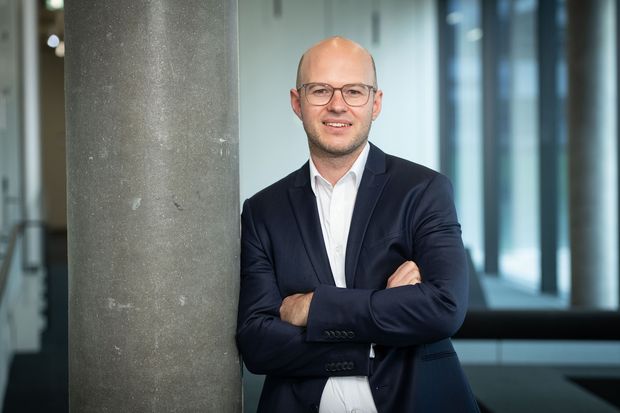Educational researchers Sonja Lenz and Christoph Helm (Johannes Kepler University Linz) conducted an Austria-wide study survey of secondary school students to explore just how lessons should be structured in order to avoid, or at least minimize, negative effects when schools are forced close.

The study shows that students at schools supporting the concept of “cooperative and open learning” (COOL for short) in class before the pandemic emerged more successful from the pandemic and also reported a significantly higher quality education during distance learning sessions, higher learning gains, a stronger motivation to study, and less stress during school closures.
The COVID-19 pandemic resulted in worldwide school closures. A recent OECD comparison shows that in Austria, upper secondary level schools were closed for a fairly long period. School closures over the past two school years have hit students all over the world hard, including in Austria. Initial meta-studies conducted by the Department of Educational Research at the Johannes Kepler University Linz have extensively documented the negative effects of school closures in regard to the quantity and quality of student learning as well as their learning levels and educational disadvantage in Germany, Austria and Switzerland. In particular, the number of students who spent less than two hours a day on schoolwork and studying increased sharply, especially during the first school closure during the spring of 2020. According to international studies, students lost between two and four months of schooling alone as a result of school closures during Spring 2020. Educational inequality also worsened. Students from socially disadvantaged families lost one to two months of schooling over school students from more socially privileged families. In addition to learning losses and an increase in a socially-related educational disadvantage, there is documentation that the longer schools were closed, parents and students alike were subject to increased strain and burden.
How can we prevent negative effects caused by school closures?
During the pandemic, schools were forced to close quickly, resulting in numerous negative effects. Questions quickly emerged as to what kind of educational concept would ensure less of a negative impact. As part of a large-scale, Austria-wide study, a team of researchers led by Sonja Lenz and Christoph Helm (Department of Educational Research at the JKU) explored this question. 2,274 students (the majority from vocational middle schools and higher-level schools) took part in an online survey conducted between April 14, 2021, and June 23, 2021. Almost half of the students surveyed (46%, meaning 1,056 students) had classroom instruction according to the “cooperative, open learning (COOL)” concept before the pandemic hit.
COOL - Cooperative and Open Learning
implemented in Austrian classrooms. COOL (Cooperative, Open Learning) is an educational philosophy focusing on independent and social learning with a high degree of student autonomy. Similar to COVID-19 based distance learning, students are required to work independently and turn in assignments by a specified deadline. Teachers take on more of a role as coach and mentor, reducing their role in regard to knowledge transfer.
Since COOL strongly encourages and supports autonomous learning, independence, and personal responsibility, the research team hypothesized that students exposed to the COOL concept would, in turn, also be more proficient when it came to independent learning during COVID-19. The study is the first of its kind to substantiate this belief.
How COOL Lessons Can Prevent A Negative Impacts in Regard to School Closures
Lenz and Helm's study shows that during school closures, students in COOL-supported classes reported significantly higher learning gains. In addition to learning in various subject areas, students in COOL-supported classes also reported significantly lower levels of stress during school closures. Additional analyses also show that the COOL concept not only directly effects student outcomes (learning success and well-being/motivation), but they also indirectly affect students in regard to various aspects of educational quality.
For example, the percentage of students that reported a higher quality in distance education is 10% to 20% higher in COOL-supported classes than classrooms with a more conventional educational approach. In particular, COOL students reported:
- significantly higher feedback by instructors during distance learning sessions,
- significantly higher clarity and structure during distance learning sessions,
- significantly higher teacher competence and motivation during distance learning sessions,
- significantly higher autonomy and choices during distance learning sessions,
- significantly higher cooperative and social learning in distance education,
- a significantly higher pronounced culture of self-directed learning.
During school closures, the higher feedback, higher clarity and structure, and higher rated teacher competencies students experienced during distance learning sessions resulted in a higher rate of perceived learning success, a higher learning levels and motivation during distance learning sessions, and a lower level of stress during lockdown. In this regard, COOL had direct and indirect effects on key student outcomes. The direct and indirect effects COOL had in regard to learning success, motivation, and stress are of high, statistical significance and applied importance.
The JKU educational researchers’ findings show that the study by offers initial evidence that COOL has a significantly higher educational potential than conventional, strongly teacher-centered education and could prevent negative learning effects during school closures. The COOL approach helps create parameters in support of education and learning that counteracts and/or prevents the negative effects of school closures that was widely observed during the pandemic.
Christoph Helm sums up: "While open education is not a cure-all for the many challenges schools faced when they were forced to close, educational concepts that support the learners' independent learning skills are a key tile in the mosaic to combat negative effects of pandemic-related school closures. The concept should get more attention, particularly if schools are forced to close again in the future."








